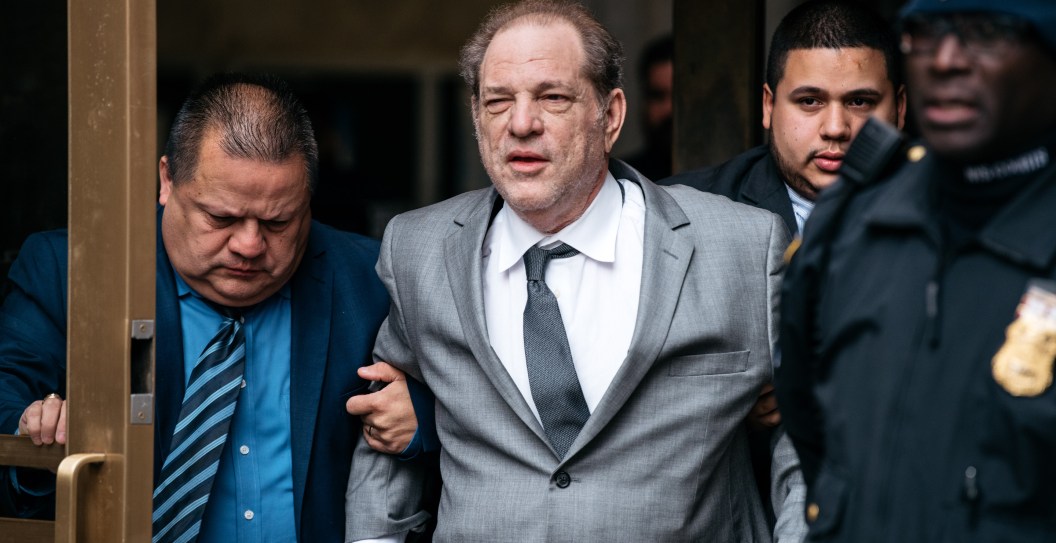Harvey Weinstein was arguably one of the biggest scandals of 2017, kickstarting the whole #metoo movement. The disgraced producer recently had his New York conviction overturned. Does this mean that Weinstein may soon be a free man out of prison?
Harvey Weinstein Is Serving 16 Years In Prison
No, Harvey Weinstein won't be getting out of prison. The producer was also convicted of sexual assault in Los Angeles. The court sentenced him to 16 years there. However, Weinstein will be transferring prisons thanks to the recent overturning of his sentence. He will move from New York where he is currently located to California to serve his sentence.
New York Court of Appeals overturned Weinstein's conviction in a 4-3 split. The courts previously convicted Weinstein of sexual assault against three women. However, the appeals court found the trial judge "erroneously admitted testimony of uncharged, alleged prior sexual acts against persons other than the complainants of the underlying crimes."
Additionally, it said the testimony "served no material non-propensity purpose" and "portrayed defendant in a highly prejudicial light." Weinstein's team is celebrating the victory. Weinstein spokesperson Juda Engelmayer told ABC News, "We are happily surprised and we are studying the ruling."
New York Could Retry The Case
Weinstein was convicted in 2020 of two felonies, criminal sexual assault and third-degree rape. New York prosecutors may decide to retry Weinstein in the case. "We will do everything in our power to retry this case, and remain steadfast in our commitment to survivors of sexual assault," a spokeswoman for Manhattan District Attorney Alvin Bragg said in a statement.
Meanwhile, attorney Douglas H. Wigdor, who has represented eight alleged Weinstein victims, condemned the overturning of the trial. He said in a statement, "Today's decision is a major step back in holding those accountable for acts of sexual violence. Courts routinely admit evidence of other uncharged acts where they assist juries in understanding issues concerning the intent, modus operandi or scheme of the defendant."
He continued, "The jury was instructed on the relevance of this testimony and overturning the verdict is tragic in that it will require the victims to endure yet another trial."
The Court of Appeals chose to overturn the trial because the judge allowed testimony about crimes Weinstein wasn't being charged for. They believed that may have tainted the ultimate judgement. Likewise, they called out the trial judge for having a bias against Weinstein, saying they allowed Weinstein to be cross-examined about the uncharged crimes. They ruled it "served no purpose other than to display for the jury defendant's loathsome character."




